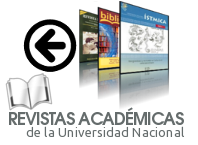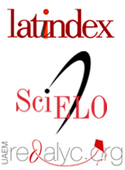A DEFESA DA BIODIVERSIDADE DO POVO INDÍGENA ZENU DA COLÔMBIA: APROXIMAÇÃO AO PROCESSO DA CONFORMAÇÃO DE UMA IDENTIDADE ÉTNICO – TERRITORIAL
Palabras clave:
biodiversidade, território, identidade étnico – territorial, discurso performativoResumen
Este trabalho tem como finalidade analisar o processo de apropriação e conservação da biodiversidade desde a perspectiva do povo indígena zenu da Colômbia e dos diferentes atores sociais, tais como organizações sociais de caráter local e ONGs, que trabalham nesse território, a partir da introdução de sementes transgênicas de milho em regiões vizinhas ao seu território em 2007. O objetivo, portanto, é conhecer, através de uma pesquisa etnográfica, as diferentes iniciativas sociais e políticas impulsionadas desde este povo indígena em seu propósito de defender a biodiversidade do seu resguardo, e, como resultado das mesmas, analisar a constituição de uma identidade étnico – territorial dentro deste grupo indígena.
Assim, a biodiversidade constitui-se em um elemento fundamental na configuração das identidades étnico-territoriais dos seus habitantes. A configuração dessas identidades é sustentada, complementariamente, por uma elaboração discursiva de caráter performativo. Esse processo desemboca, a sua vez, em uma de “re-etnização” do território que, além de reivindicar referentes espaciais e elementos culturais de vital importância para este grup humano, como é o milho, estabelece os limites de uma nova “fronteira” simbólica em relação aos estados nacionais, geradora de sentimentos de pertencimento, mobilizações e posições políticas que confrontam as problemáticas que ameaçam esses territórios.Descargas
Cómo citar
Número
Sección
Licencia
Política propuesta para Revistas que ofrecen Acceso Abierto
Los autores que publican en esta revista están de acuerdo con los siguientes términos:
a. Los autores conservan los derechos de autor y garantizan a la revista el derecho de ser la primera publicación del trabajo, bajo la Licencia https://creativecommons.org/licenses/by-nc-sa/4.0/deed.es, que permite a otros compartir con un reconocimiento de la autoría del trabajo y la publicación inicial en esta revista.
b. Los autores pueden establecer por separado acuerdos adicionales para la distribución no exclusiva de la versión de la obra publicada en la revista (por ejemplo, situarlo en un repositorio institucional o publicarlo en un libro), con un reconocimiento de su publicación inicial en esta revista. Esos acuerdos adicionales deben respetar los términos de la licencia: es decir: no involucrar fines de lucro y compartir con la misma licencia.
c. Se anima a los autores a archivar el post-print o versión de editor/PDF en repositorios de acceso abierto.







 REVGEO se encuentra bajo la licencia https://creativecommons.org/licenses/by-nc-sa/4.0/deed.es
REVGEO se encuentra bajo la licencia https://creativecommons.org/licenses/by-nc-sa/4.0/deed.es
.svg_4.png)

_(1).png)
_(1)_(1)_(1)_1.png)
(2)(1)(1)(1).png)
